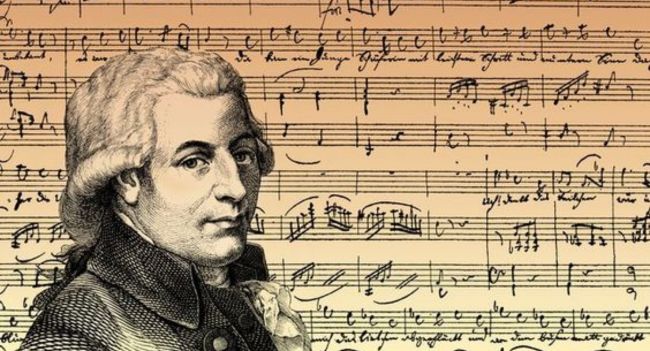Two keyboard pieces by the 8-year-old composer found in Salzburg
Two keyboard pieces apparently written by an 8-year-old Mozart in around 1764 have been discovered in the library of the Mozarteum Foundation in Salzburg. For more than 200 years, the pieces have lain unrecognised within the pages of the famous ‘Nannerl’s Music Book’, a collection of pieces used by Mozart’s father, Leopold, to tutor his young son and daughter, Maria Anna, or Nannerl, as she was fondly nicknamed.

The two pieces consist of 35 bars of a prelude and a complete 75-bar movement of a concerto (only the solo part was composed) and are both in Leopold Mozart’s handwriting. It has now been claimed that the young WA Mozart improvised these small works at the keyboard—possibly a clavichord—which were then transcribed by his father as the young boy was not yet able to write music. Ulrich Leisinger, director of the Mozarteum’s research department, made the discoveries based on the immature style of the works as well as the huge difference in the pieces from Leopold’s own works. Although there is no evidence that Mozart’s father didn’t have a hand in improving or extending the works, evidence suggests that the 8-year-old was more than capable of writing sophisticated music.
An anecdote recounted by a family friend soon after Mozart’s death describes how Leopold was examining some blotchy, untidy sketches of an early concerto movement written by his 7- or 8-year-old son. The friend, the trumpeter Johann Andreas Schachtner, describes the moment: ‘At first we laughed at what seemed such pure gibberish, but Wolfgang’s father then began to observe the most important matter, the notes and music,’ Schachtner recounts. ‘He stared long at the sheet, and then tears, tears of joy and wonder, fell from his eyes. “It is so very difficult that no one could play it,” Leopold said. And Wolfgang replied, “That’s why it’s a concerto. You must practice it till you can get it right.”’
Although not particularly compelling musically, both works are nevertheless interesting as they show the young composer at an exciting stage in his development. From the age of five, Mozart was improvising minuets at the keyboard, and at seven, he was already trying his hand at symphonies while on tour with his father in London. These two newly discovered pieces, comparatively imaginative and virtuosic, reveal that the boy must have had a highly developed keyboard technique and a sound grasp of basic harmony. While it is universally accepted that Mozart’s true masterpieces were written after the age of 17, these works provide another fascinating insight into the life of someone who was to become one of our very greatest composing geniuses.
